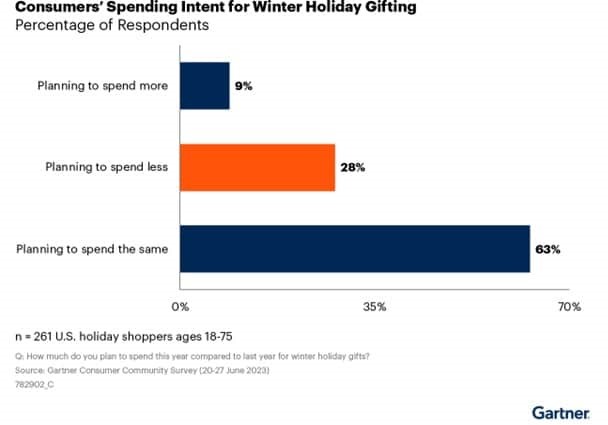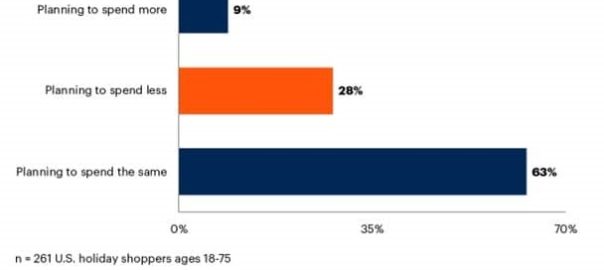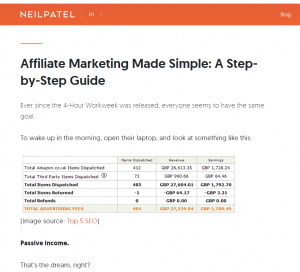Many brands will be marketing around price this year. Use inclusivity and ESG achievement to stand out in the crowd.
With the holiday shopping season gaining steam, many economic indicators suggest marketers should be focusing on price and savings. However, a new Gartner report takes a contrarian view, saying the focus should be on inclusivity and ESG (environmental, social and governance) achievements.
The argument for building campaigns around price is supported by some substantial facts. Inflation is persisting and, with a current annual rate of 3.7%, it remains a big concern for consumers. Some 55% say it will have a moderate to significant impact on their holiday spending, according to a Numerator survey. Additionally, 67% say they will be buying items on sale, and 48% plan to buy less.
It’s also worth noting the results of a new Trustpilot survey, which found:
- 1 in 3 Americans are considering going into credit card debt to purchase holiday gifts this year.
- 34% of shoppers would look at dipping into their savings, and 1 in 3 would consider starting a side hustle to offset the costs.
- 41% of consumers are considering using buy now pay later services, while an additional 2 out of 5 consumers would cut down on essential expenses such as food and gas to afford their gifts.
- On average, Americans who shopped during the 2022 holiday season intend to spend 39% less this year.
Gartner’s own research says only 9% of U.S. consumers will increase their holiday spending this year.

“This year, re?ning holiday marketing campaigns to meet the moment is critical. Just over one-third of consumers have reported cutting back their discretionary spending so far this year, which could result in retailers’ performance suffering in many categories leading up to the holiday season,” Gartner’s 2023 Holiday Marketing Guide for Retail says.
This is why most companies will be marketing around price. As a result, marketing built around inclusivity and a brand’s ESG accomplishments can be a differentiator this year, according to the report.
A year of strong reactions
This is an unusual position given that 2023 saw huge consumer reactions to Target’s Pride Month merchandising, Adidas’ partnership with Kanye West and one social media post indicating Bud Light believed trans people are OK. (The Gartner report diplomatically refers to these episodes as “signi?cant consumer reaction to explicit or implicit socio-political stances.”)
The report does acknowledge that the vast majority of consumers don’t think about a brand’s positions on issues when deciding to buy. However, it also says the number who do think about those stands has been steadily increasing. This is especially true for younger consumers:
- 43% of Gen Z and 41% of millennial respondents say what a brand stands for factors into their purchase decision
- Only 34% of Gen X and 29% of baby boomers felt the same way.
- 13% of all winter holiday shoppers said an ESG stance was the most important factor when selecting a gift.
- Younger consumers said factors like the gift being locally made or from a brand owned by a member of a historically underrepresented group are more important than access to expedited shipping.
Simply having diversity in marketing and advertising can result in significant positive reactions. “When exposed to ads or marketing that focus on inclusivity, 38% of consumers say that their attitude or behavior toward the brand positively changed,” the report states. “For example, consumers note that when exposed to inclusive ads, they viewed the brand more favorably, were more likely to purchase from the brand, and were more likely to share positive news about the brand with others.”
Don’t ignore pricing
To be clear, Gartner believes pricing should also be an important part of holiday campaigns. They are also very cognizant of the risks involved in taking a stand that may be considered politically sensitive.
“Marketing on cause is not without potential peril,” Kassi Socha, director analyst in the Gartner Marketing practice, said in a statement. “Retail CMOs concerned about taking a strong socio-political stance and risking brand reputation in their winter holiday marketing should ensure it will be perceived positively and authentically by target consumers, and ensure preparedness if consumers react negatively.”
They suggest conducting a quick consumer survey to understand potential reactions; extending existing ESG efforts and market annual progress towards long-term goals, and preparing a communication and executive escalation plan to respond to negative campaign feedback. The plan should identify what types of feedback could have a tangible commercial impact or lead to behavior changes in high-value customers. Escalation plans should not be developed in isolation but as part of an overarching strategy on behalf of the organization to internally identify what the brand stands for on current issues, even those that may not seem relevant now.
The post New Gartner report challenges conventional wisdom on holiday marketing appeared first on MarTech.
(14)
Report Post







